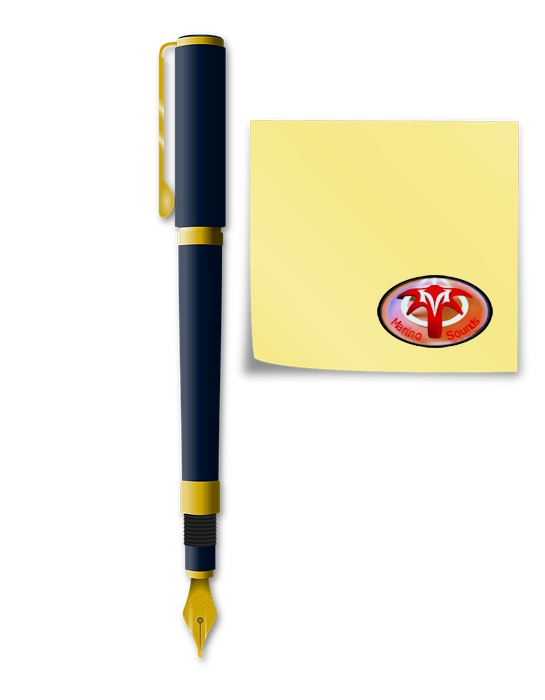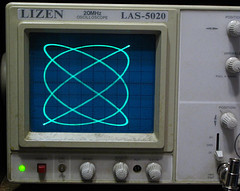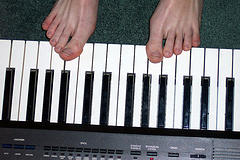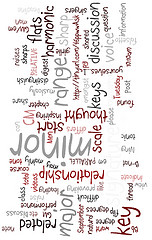by Manuel Marino | Music Theory
All those seemingly mysterious small sharps and flats in the key signature are actually much simpler to understand than they appear. Let me provide you with some tips to help you grasp the concept and become a more knowledgeable guitar player.
Firstly, keep in mind that music notation as a whole is merely a set of instructions for playing a piece. Learning to read it is similar to when you were learning to read books back in second grade. It takes a little time, but quickly becomes quite natural if you learn a few tricks.
The key signature is there to inform us which notes in the scale are sharpened or flattened. It also indicates the key of the piece, providing you with additional information before you even start playing.
The key signature can contain anywhere from 0 to 7 sharps or flats. You won’t see them mixed – it’s either one or the other. The sharps and flats are located on the line or space of the note they correspond with. For example, if you see a sharp on the top line of the staff, it tells you that you’ll play F# every time you see an … ...Read the rest.
“Music Theory For Guitarists – How Key Signatures Work”
by Manuel Marino | Music Theory
Here are three things I suggest you memorize:
- All the notes of the dobro or a specific instrument
- All the Key Signatures
- All the Chords and Chord Tones for each key
Question: Why do this?
Answer: To gain a more comprehensive understanding of the instrument, and to know where you are at all times, and to understand why what you’re playing may sound good and why it may sound not so good.
Question: Is there an easier way? Can I get around not knowing any music theory and not knowing where some of the notes on my instrument are located?
Answer: I have found that if you don’t want to learn any music theory, you can still play and even become quite good. Many great players have done it, and here are what I think your options are if you want to become good but don’t want to learn any music theory.
No Music Theory Option 1:
(I highly recommend doing this “in addition” to also learning music theory)
To simply transcribe a vast amount of songs, solos, rhythm playing, song styles, etc., so many that you use the memory of those solos to dictate what … ...Read the rest.
“Dobro Lessons – Music Theory + Playing by Ear = Super Musician!”
by Manuel Marino | Music Theory
Within the musical community, there is a debate about the worth of music theory that will not ends. Is it significant to research music theory scales, or is it better to simply dive into the music and experience it viscerally. The proponents of understanding the theory regarded it as an important piece of understanding how to play music. You are able to understand by trial and mistake, they state, but you’d do better to benefit within the knowledge of others. Not learning music theory when you play music is a lot like refusing to understand arithmetic when you may be studying math.
The additional side, still, has merely a sturdy of a argument. They claim that music theory worksheets are stifling. The point of music, they argue, is creativity. You could dive into it and experience it viscerally. Understanding the theory of music too early on may stifle the creativeness. Although it is very alright to understand music theory chords later, it is actually a lot less significant than having some experience really playing music.
I used to be found on the latter site, but I have lately switched opinions. You see, I learned music without music theory. … ...Read the rest.
“A Well Rounded Musical Education Includes Theory”
by Manuel Marino | Music Theory
Music theory is often considered one of the most challenging subjects in music. It is filled with information that can be difficult to comprehend and absorb. Traditional classroom learning can sometimes become tedious and less engaging. Students often find the theoretical aspects of music quite dull. However, the theoretical component of music education is one of the most crucial subjects that we learn during our music classes. This subject enables us to understand the various innovations in music and how sounds have evolved due to changes in instruments.
Learning music theory properly can aid your future career as an innovator. It can also help you develop your unique sound as you become more proficient with your instrument and play to your mind’s rhythm. Nevertheless, some assistance is needed to make the subject more engaging and approachable. For this purpose, there are excellent Music Theory Books available. These books contain a wealth of information related to music theory and education. They present various aspects of music theory, which can be challenging to grasp, in a clear and articulate manner.
These books teach you how music functions and are often able to explain concepts in a well-defined and concise way. … ...Read the rest.
“Learn Music Easily With Theory Books”
by Manuel Marino | Music Theory
There are many misconceptions about modes and how they work. A lot of the confusion comes from the term “mode” itself, as it refers more to a relation to another scale than an actual scale in its own right. You may have heard or read that modes are based on a certain scale (usually the major scale), and all you need to do is play from a specific degree (note) up or down the scale one octave to get the mode in question. However, this oversimplification overlooks the crucial aspect of modes and perhaps music itself: context!
Playing modes over a single drone or chord progression in a specific key may not yield the distinct modal flavors you expect. For example, if you play E Phrygian or F Lydian (two modes “based” on the C major scale) over a C drone, you’ll still hear a C major sound. Context is everything: if you play a C Lydian or C Phrygian scale (mode) over that same C drone, you will hear a different flavor.
In this explanation, we will focus on static or “modal” harmonies, not dealing with modes in the context of jazz or changing harmonies. We aim … ...Read the rest.
“Music Theory – An Introduction to Modes”
by Manuel Marino | Music Theory
You may find that there are numerous music theory books on guitar available in the market. However, it is crucial to be discerning when selecting the theory books for your studies. Keep in mind that not all books are of equal quality. First, you should be aware of the three types of guitar theories that exist: classical, jazz, and rock/blues. If you want to focus on modern guitar theories, here are some guidebooks that may help you:
- A Modern Method for Guitar: This series, consisting of three volumes, is often referred to as the ‘Berklee Books.’ Written by William Leavitt, these volumes cover everything you need to know about guitar fretboard Mastering the Guitar Fretboard - If you want to learn guitar at an advanced level, it's crucial to memorize the fretboard. This essential task greatly aids in mastering chords and scales. For example, consider a simple chord: C major. It consists of three notes: C (root), E (major 3rd), and G (5th). If you know the fretboard, you can play… theory. In addition to learning the basics of creating music on the fretboard, you’ll also have the opportunity to practice technical exercises.
- The Jazz Theory Book: Authored
… ...Read the rest.
“Music Theory Books That Guitarists Should Read”


 Manuel is a passionate, driven, and techsavvy AV technician,
Manuel is a passionate, driven, and techsavvy AV technician, 






Recent Comments